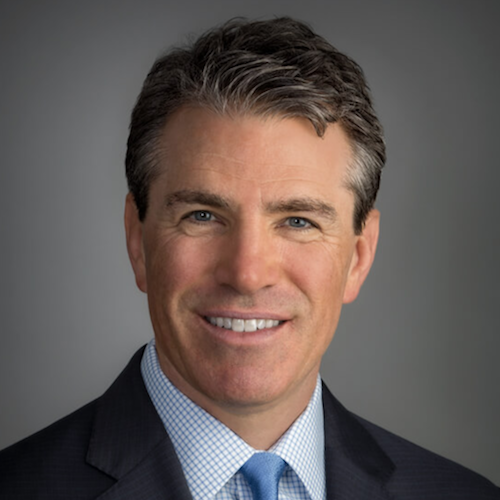

Although not the reason behind Healthpeak Properties’ planned exit of its senior housing operating and triple-net lease portfolio businesses, COVID-19 certainly served as a catalyst for a full exit, CEO Thomas Herzog said Tuesday during the real estate investment trust’s third-quarter earnings call.
The REIT announced that, as it moves its headquarters from Irvine, CA, to Denver, it is in various stages of selling more than $4 billion worth of properties in its senior housing properties. Healthpeak will keep continuing care retirement communities, which as of Sept. 30 included 17 properties operated by Life Care Services, Brookdale Senior Living or Sunrise Senior Living. Comparatively, as of Sept. 30, the REIT had approximately 190 non-CCRC senior living properties in its portfolio.
“Our movement forward was not a knee-jerk reaction to COVID, but rather a strategic, long-range decision about where we want our portfolio mix and future growth to reside,” Herzog said, adding that senior housing could be looking at a six- to 24-month bumpy ride with much uncertainty. Senior housing, he said, is a “more volatile business.”
During the third quarter, Healthpeak closed on the sale of 14 senior living properties, generating proceeds of approximately $100 million. Another $1.5 billion in properties is under binding and non-binding purchase agreements, and approximately $2 billion are under letters of intent, with the majority of the remaining senior housing and triple-net properties actively being marketed.
Transitions
President and Chief Investment Officer Scott Brinker said that exiting the senior housing operating and triple-net portfolios will help Healthpeak become more of a pure real estate company that is attractive to investors. And with the fast-growing demographics of the baby boomers, Herzog said the market is ripe for capturing good pricing as the company seeks to exit the senior housing market.
With core business in CCRCs, life sciences and medical office buildings, Herzog said, all of the REIT’s sectors will take advantage of the same baby boomer growth demographic, and are all private-pay and have a higher barrier to entry.
CCRCs, compared with other senior housing classes, he said, are more attractive because they appeal to more affluent older adults, who pay sizable, non-refundable entrance fees and have eight- to 10-year average lengths of stay. CCRCs also sit on 50-acre parcels, on average, making them more of a real estate investment, he added.
“The vast majority [of residents] come in through the independent [living] side of the business. It’s a lifestyle choice, where they are effectively going in and investing, for the balance of their lives, into the asset that they will be occupying,” Herzog said. “And for us, that creates a much more stable asset from an investment perspective or from a real estate investment perspective.”
COVID effect
The senior housing operating portfolio, Herzog said, continues to experience pressure from occupancy and expense trends related to COVID-19, partially offset by Coronavirus Aid, Relief, and Economic Security (CARES) Act funding.
Executive Vice President and Chief Financial Officer Peter Scott said its senior housing and CCRC portfolios combined saw $10 million in elevated COVID-19 expenses in the third quarter on top of $20 million in expenses during the second quarter. COVID-19 expenses were 61% lower, at $5 million, in the third quarter versus the second quarter for the senior housing portfolio and 29% lower in the CCRC portfolio.
COVID-19 cases in Healthpeak’s senior housing operating portfolio declined 77% from mid-April, and 88% of the REIT’s properties are either 14 or more days from the most recent exposure or never had an exposure.
Average daily occupancy for the senior housing operating portfolio declined 10 basis points (0.01%) in October, the lowest monthly decline during the pandemic. The CCRC portfolio saw a 20-basis-point (0.02%) decline in October compared with September, whereas the independent living, assisted living and memory care numbers were flat.
In October, Healthpeak received $5.5 million in CARES Act grants for its CCRCs, and the REIT expects to receive an additional $7.5 million in the fourth quarter.
Headquarters move, board change
In other news, Healthpeak established a new corporate headquarters in Denver this month in an effort to create a more centralized geographic location relative to the locations of the properties in its portfolio. The REIT said it will keep existing offices in Irvine, CA, and Franklin, TN.
Herzog said Healthpeak will relocate 20 to 25 people to Denver, including the REIT’s C-suite executives and executive vice presidents. “Denver is a better place to recruit and retain talent over time,” he said.
Healthpeak also announced that in October, it revised its board of directors retirement policy by providing for a director term limit of 15 years, replacing the old policy mandating retirement at 75. The new policy, Herzog said, provides “a more orderly and consistent board refreshment overtime and maintains a favorable mix of experience and diversity.”
One director who has been on the board for more than 15 years will be allowed to remain until the age of 75 “so as not to accelerate retirement due to the revised policy,” Healthpeak said.


